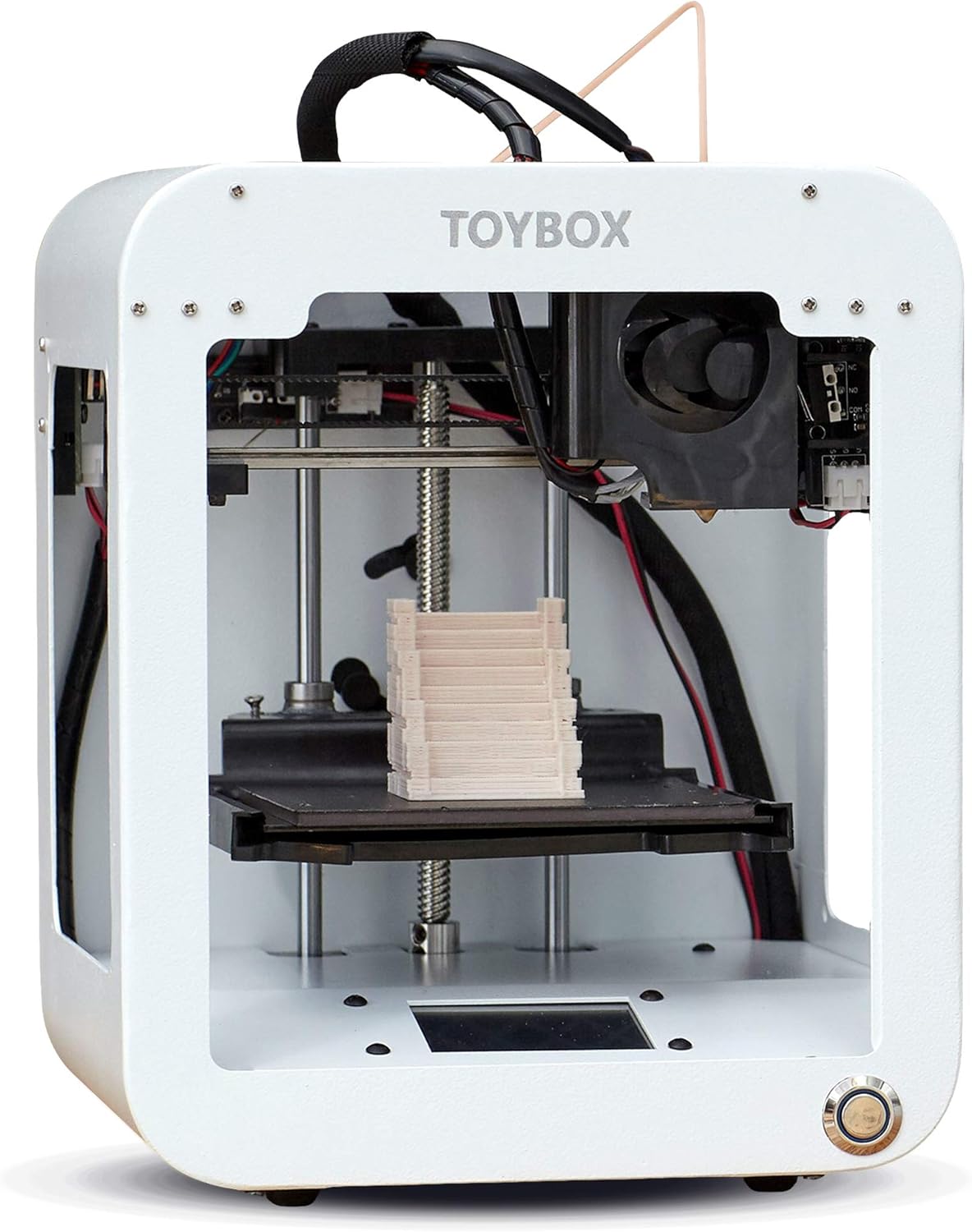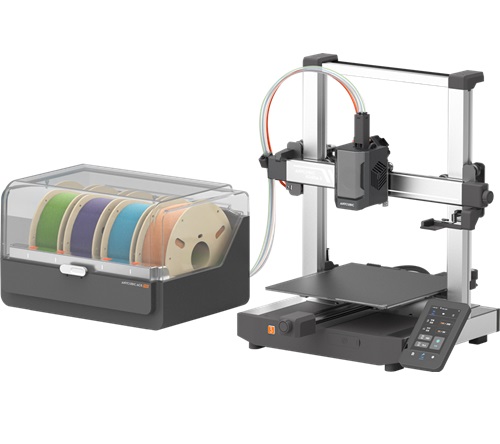Compare Toybox vs Kobra 3 Combo
Comparison between the best 3D printers
Choose the best 3D printer at the best price. The cheapest 3D printers are here.
Buy a 3D printer here with 3D Fila.
 |
 |
|
| Model | Toybox[BUY Toybox] |
Kobra 3 Combo[BUY Kobra 3 Combo] |
| Printing Material | Filament | Filament |
| Buy Filament for Toybox Toybox | Buy Filament forAnycubic Kobra 3 Combo | |
| Estimated price | $299,00 | $349,00 |
| Manufacturer | Toybox | Anycubic |
| Release Year | 2024 | 2024 |
| Print Volume [mm] | 70x80x90 | 250x250x260 |
| Printer Size [mm] | 190x190x230 | 452x504x483 |
| Weight [kg] | 3 | 9,2 |
| Power Loss Recovery | NO | YES |
| Enclosed printer | NO | NO |
| Bed Leveling | Manual | Automatic |
| Filament End Sensor | NO | YES |
| Bed type | Heated | |
| Power supply system | Direct Drive | Direct Drive |
| Standard nozzle | 0,5 | 0,4 |
| Maximum Nozzle Temperature [°C] | 210 | 300 |
| Maximum Bed Temperature [°C] | 110 | |
| Maximum printing speed [mm/s] | 60 | 600 |
| Filament holder | YES | YES |
| Camera for supervision | NO | NO |
| Recommended filaments | PLA | PLA, PETG, ABS, PP, HIPS |
| Recommended slicers | Toybox | Anycubic Slicer, Cura, Orca Slicer |
| Maximum Resolution [mm] | 0,2 | 0,1 |
| Processor | 32 bits | |
| Display | Touchscreen 2,4'' | Touchscreen 4,3'' |
| Power Supply | 400 W | |
| Connectivity | Wi-fi | USB, Wi-Fi, Cloud |
| Operating systems | iOS, Android | Windows, Linux, Macbook |
| Date of registration in the system | 2024-08-06 | 2024-06-27 |
| Release date | 2024 | 2024 |
| Extra features | The Toybox 3D printer is an excellent option for children and beginners. Easy to use, with intuitive setup and simplified operation via an app. The Toybox allows you to print thousands of toys and projects through a user-friendly interface. It has a removable magnetic table that makes it easy to remove printed objects. The filament is PLA, safe for children, and the printing is reliable and error-free. It also offers custom design options, allowing you to create and print drawings and photos. | The Anycubic Kobra 3 Combo offers advanced features, including multi-filament printing with the ACE (Anycubic Color Engine) system, allowing for quick switching of up to four filaments. It features automatic bed leveling, nozzle clogging detection, and integrated filament drying during printing. The printer supports technical materials such as ABS, ASA, Nylon, and PC, thanks to the hotend that reaches 300°C and the heated bed up to 110°C. In addition, it has a 4.3-inch touchscreen and compatibility with various slicers such as Anycubic Slicer, Cura, and Orca Slicer. |
| Support for multiple colors and materials (AMS and CFS) | NO | YES |
Notes * |
||
| Cost-benefit | 6 / 10 | 8 / 10 |
| Hardware | 0.8 / 10 | 4 / 10 |
| Tela | . | . |
| Print volume | 3 / 10 | 4 / 10 |
| Performance | 0 / 10 | 5 / 10 |
| [BUY Toybox] | [BUY Kobra 3 Combo] |
Conclusion |
| In comparing the Toybox and Anycubic Kobra 3 Combo 3D printers, several key differences highlight their suitability for different users and applications. The Toybox, priced more affordably, is particularly geared towards children and beginners, offering a simplified user interface and the ability to create playful and custom designs using PLA filament. Its compact size and lightweight nature make it easy to handle and store, while its reliance on manual bed leveling may limit advanced users. On the other hand, the Anycubic Kobra 3 Combo comes at a higher price point but is laden with advanced features aimed at experienced users. It offers a significantly larger print volume and compatibility with a broader range of filament materials, including technical ones like ABS and Nylon. Its automatic bed leveling, filament end sensor, and higher maximum temperatures showcase a focus on efficiency and performance, making it ideal for more complex and varied printing projects. In summary, if you're looking for a user-friendly, cost-effective option for basic 3D printing, especially for educational purposes, the Toybox stands out as an excellent choice. However, for those who require versatility, advanced features, and improved performance in their 3D printing endeavors, the Anycubic Kobra 3 Combo is the recommended selection despite its higher cost. Thus, the decision ultimately hinges on the user’s needs: simplicity and cost versus advanced functionality and adaptability. |

